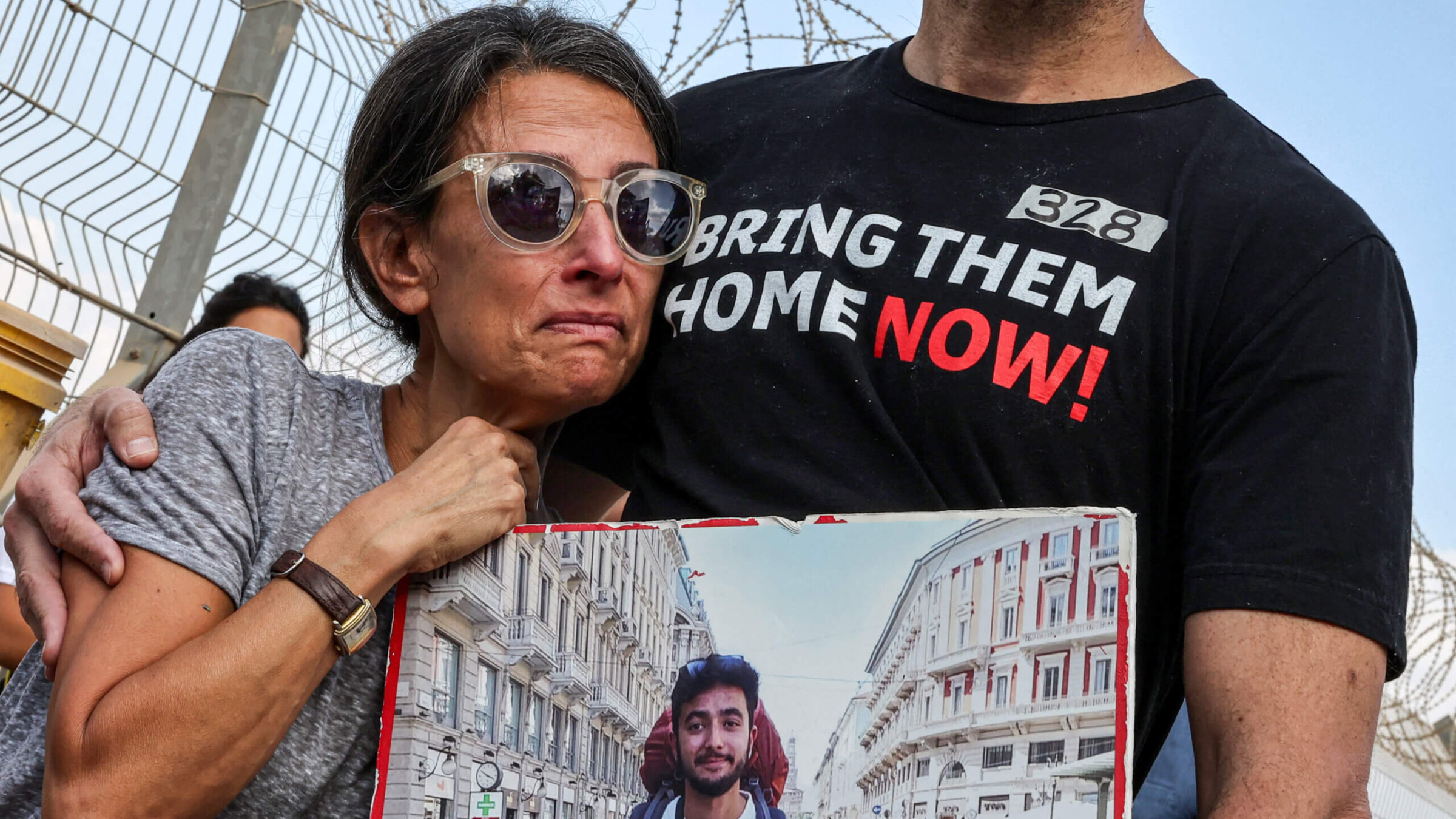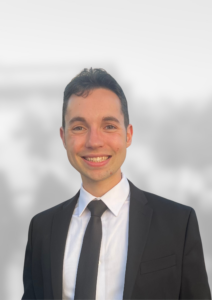Thanks to his mother, we are all sitting shiva for Hersh Goldberg-Polin
For 330 days, Hersh became a brother, son and friend to us through the tireless advocacy of Rachel Goldberg-Polin

Rachel Goldberg-Polin and Jonathan Polin, parents of Israeli hostage Hersh Goldberg-Polin, attend a demonstration by the border of Gaza with other hostage families, Aug. 29. Photo by Jack Guez/AFP via Getty Images
“Hersh! Hersh!” Rachel Goldberg-Polin’s voice roared over the Gazan border at a rally two days ago — then it whimpered: “It’s mama.”
For 330 days, Hersh Goldberg-Polin became a name and face Jews everywhere recognized. On day 331, he became a name and face Jews everywhere will mourn.
The Israel Defense Forces retrieved six bodies of hostages from Hamas’ terror tunnels in Gaza yesterday: Eden Yerushalmi (24), Ori Danino (25), Alex Lobanov (32), Carmel Gat (40), Almog Sarusi (25) and Hersh (23). All murdered by Hamas within 48 hours of their discovery by the Israeli military.
For many like myself, our persistent hope against Oct. 7’s endless trauma lay in imagining Hersh’s return to Baka, this American-Israeli neighborhood of Jerusalem where Hersh’s family lives. Visualizing that reunion fortified us with the dream of watching his sisters clutch his hand, his father scoop him into a hug and his mother cry tears of joy instead of despair.
In a cruel irony, Hersh is coming home — for his burial.
The reason so many felt so connected to Hersh is not because his life is valued more than the other precious souls trapped in Gaza; it’s because, for 330 days, Hersh felt like a brother, son, and friend we knew ourselves. And that’s because of his mother and father’s tireless advocacy for his freedom.
Five days after his abduction, Rachel wrote in The New York Times about the last words Hersh texted her on Oct. 7: “I love you” and “I’m sorry.” She described some of the many qualities we would come to learn, and love, about him: his gentle nature, kind demeanor, adventurous spirit, compassionate soul.
That article was one of countless times Rachel begged for Hersh’s freedom. “To save a life, our sages taught, is to save a world,” she wrote. “Please help me save my son; it will save my world.”
About two weeks later at the United Nations, she recounted her last moments with Hersh: the kisses he planted Friday night before grabbing his backpack to travel with his friend down south for the Nova music festival. It’s a story she would tell many times, to podcasters, journalists, international crowds, media moguls, global leaders; in magazines, on news channels, at the Democratic National Convention.
Rachel’s pleas expressed tortured anguish by the world’s failure to save Hersh. Her agonized voice emerged as the moral representative for the hostages in Gaza and the prophetic rebuke against the complacent.
Whenever she was called, she answered; wherever she was asked to attend, she traveled; whatever could bring Hersh home, Rachel did.
Every word and tear tugged us deeper into the Goldberg-Polin’s world: one without politics, identities or trivialities; one of longing, torture and fragmentation. We tied ourselves to Hersh’s future.
Israel has known too many funerals and deaths since Hamas massacred 1,200 on Oct. 7: Hundreds of soldiers killed defending the Jewish state, dozens of hostages killed in captivity. No victory could really rectify such profound loss — but the possibility of redeeming Hersh from captivity was the chance to repair a piece of our own soul.
Day after day, Rachel warned us: “Time is running out” — the window for action to save the hostages will shut, and once it does, it can never open again. Six windows shut yesterday. A little over 100 remain open, even if by nothing more than a crack. Were Rachel not mourning the collapse of her whole world right now, I believe she would urge us to not stop fighting to bring the rest of the hostages home now.
Where I live in Jerusalem, banners and flyers of Hersh’s face line every street. “Bring Hersh Home Now” is emblazoned upon each one in indicting red letters. It is impossible to stroll to the supermarket or shul without those tender eyes following me. They stare in accusation: Why am I not home? It’s a question that will forever haunt me.






















